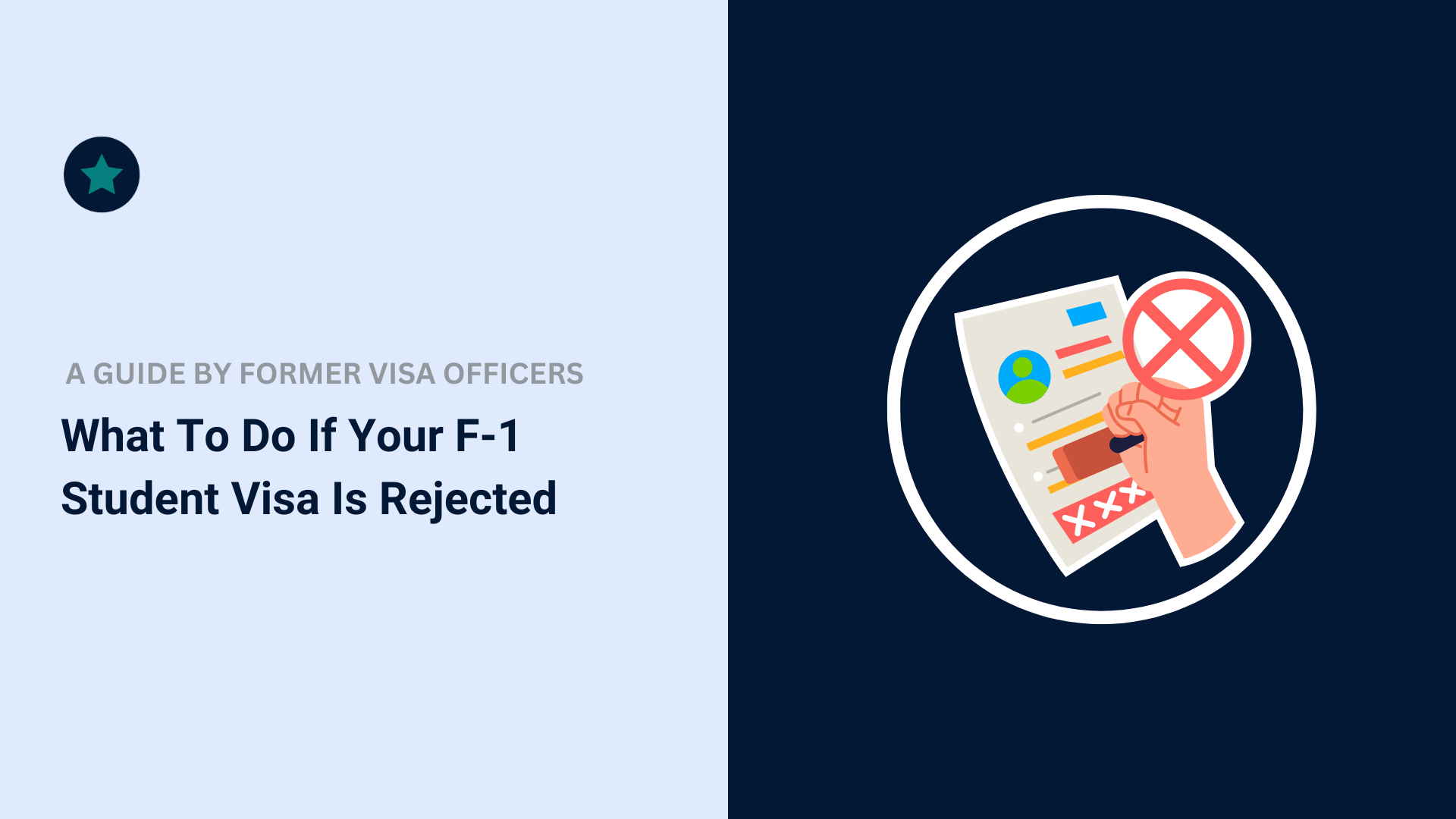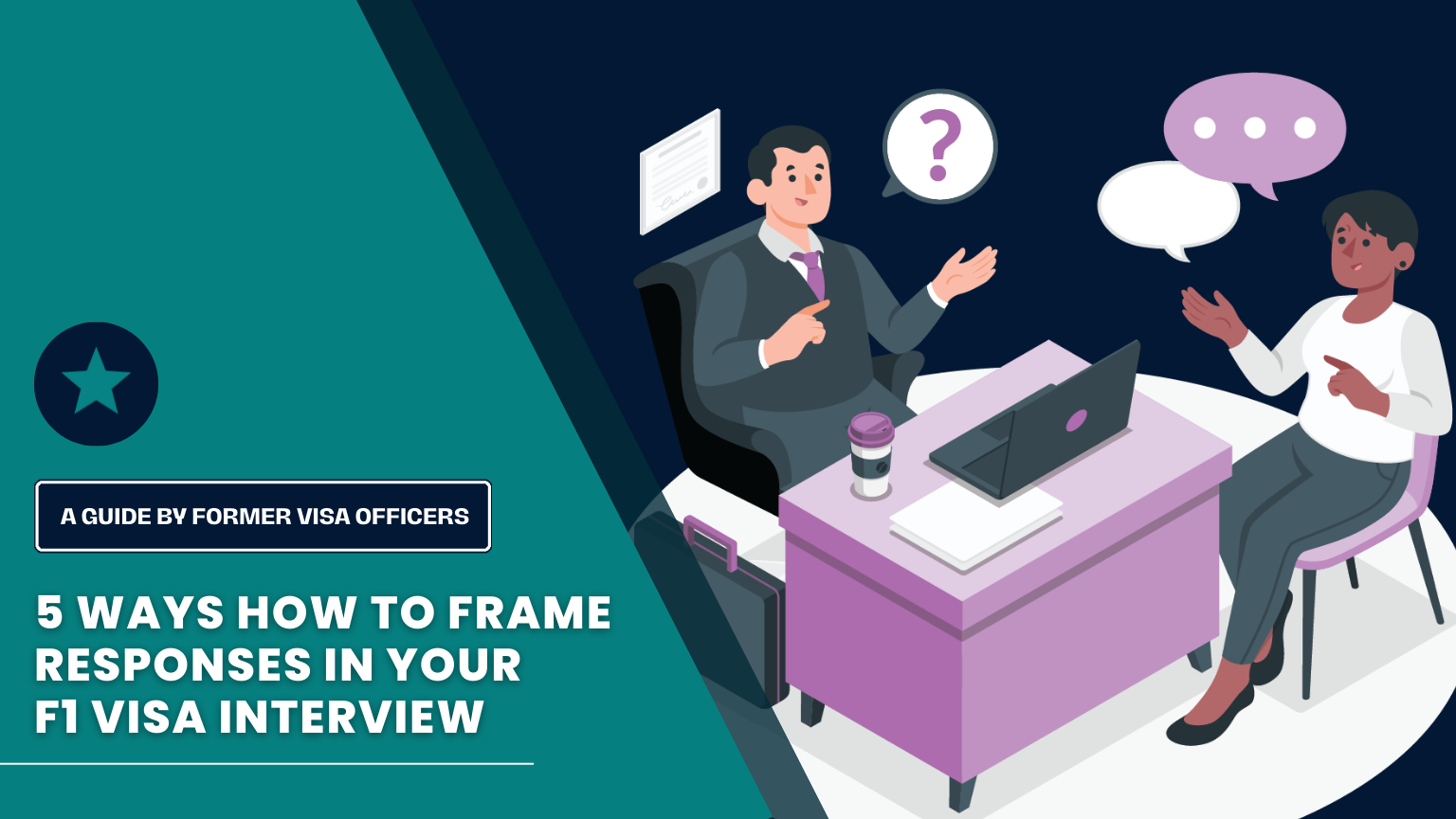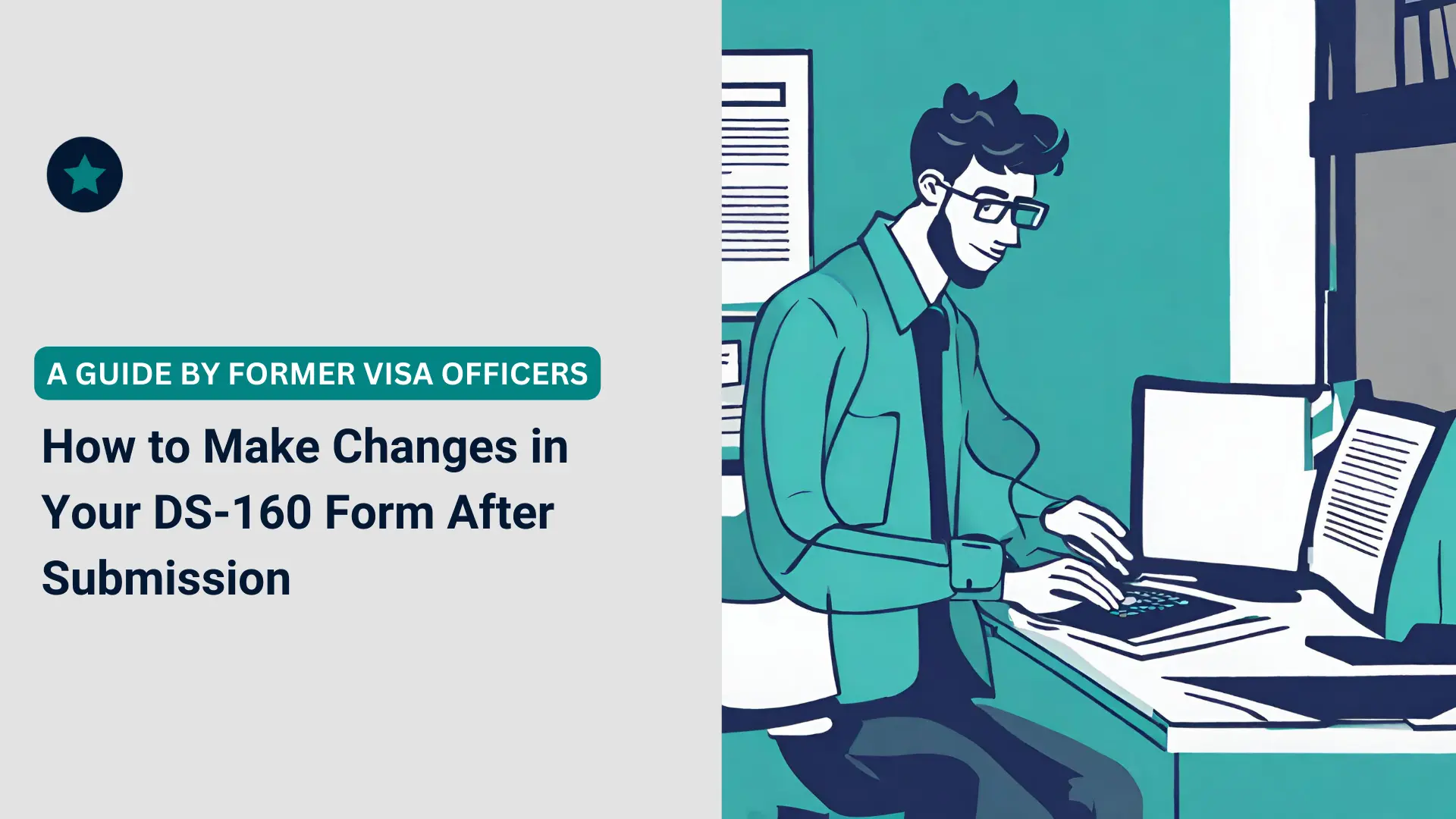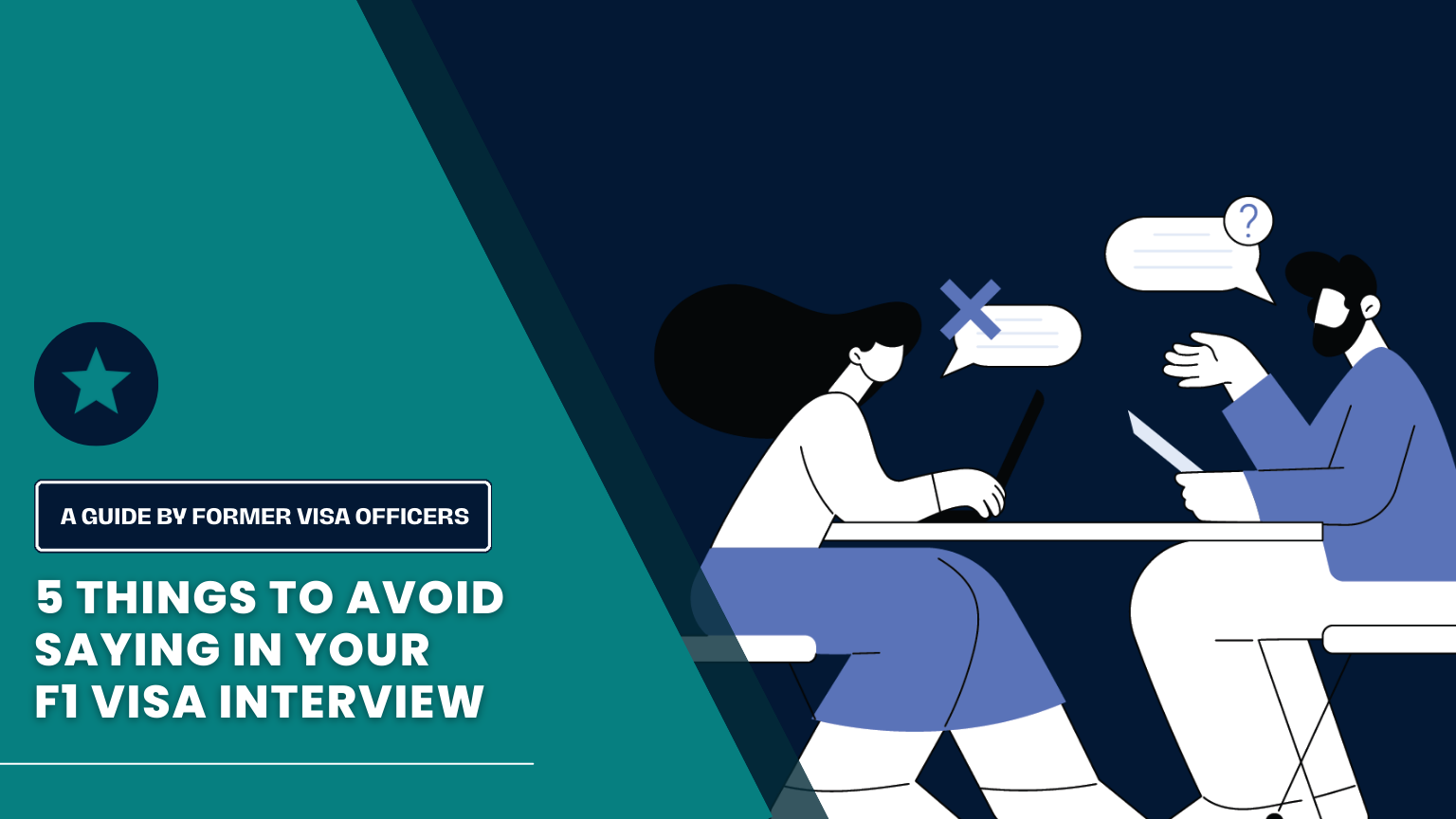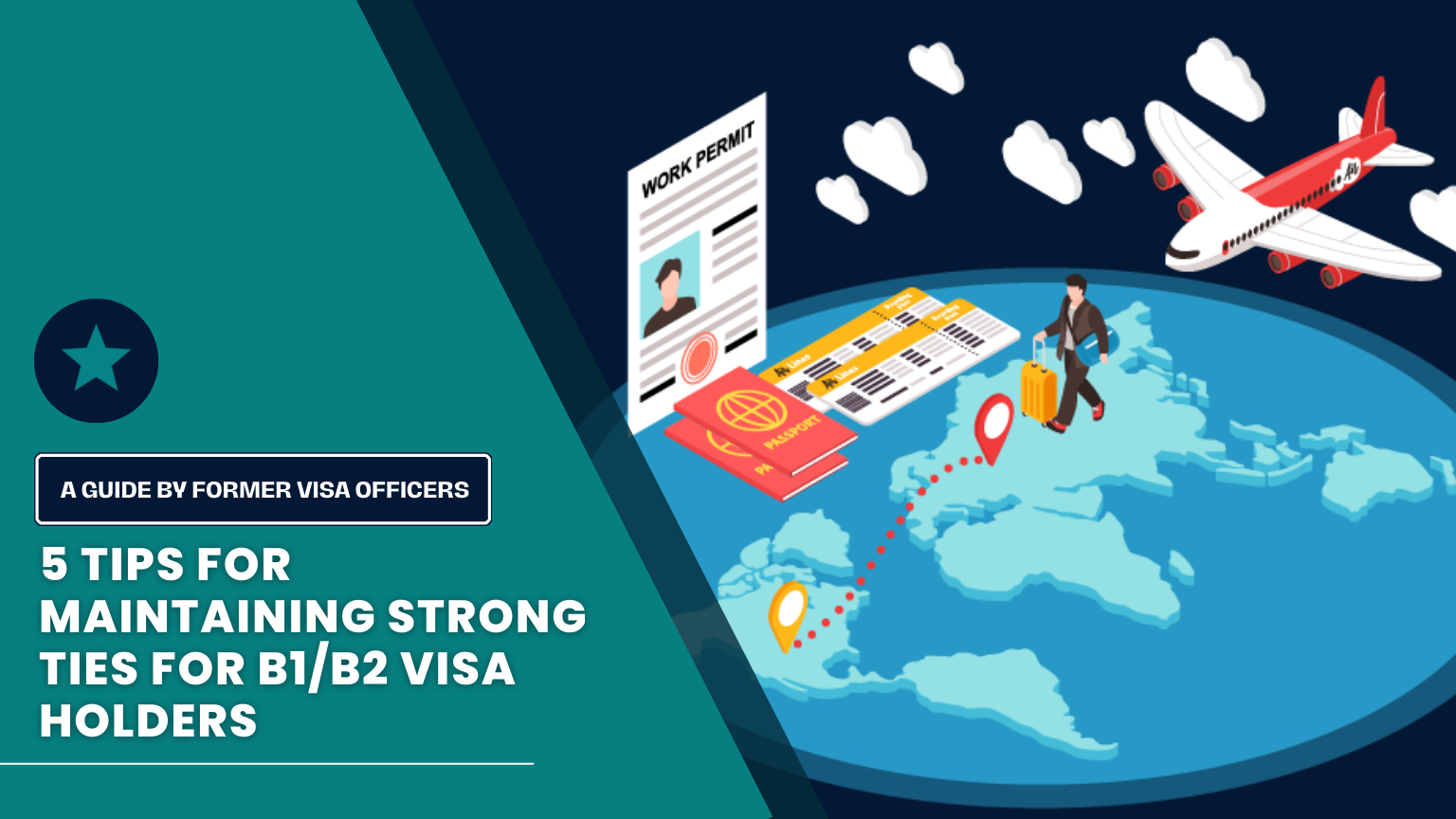You can be denied a student visa even if you have been accepted to a college or university in the United States. Acceptance to an institution of higher education in the United States is a significant step in the right direction. However, it does not guarantee a student visa.
Students who meet all academic requirements may still be denied an F-1 visa. Below, we will discuss the reasons why this happens.
Visa rejection can be pretty disheartening, but it is not the end of the road. You can reapply for an F-1 visa after making the necessary changes to improve your chances of being accepted in the next round.
Therefore, it is essential to understand why you were rejected in the first place and take steps to prevent it from happening again.
The best thing you could do is be well-prepared for your U.S. visa interview to avoid rejection altogether. Don’t spend months getting ready only to have your student visa denied and go through the lengthy process all over again.
Prepare thoroughly for your interview with the assistance of former visa officers’ expert guidance. A consult can also help you figure out why you were rejected in the first place and how to present your story better or make changes to your profile.
At Udeti, we offer one-on-one video visa consultations with former United States visa officers. Schedule your consultation today!
Table of Contents
ToggleWhat are the reasons for student visa rejections?
Common reasons for student visa rejections include:
- Providing incomplete or inaccurate information on the application
- Inability to explain your academic plan and why you selected a particular university or program
- Being unable to demonstrate sufficient financial resources to cover tuition and living expenses
- Lacking adequate English language proficiency
How to overcome an F-1 visa rejection
If your initial visa application was denied, you have the option to reapply. Many students whose initial student visa application was rejected are granted a visa upon reapplication.
Before you can reapply for an F-1 visa, you need to figure out why your first application was denied and make the necessary changes. Because One of the first questions a consular officer will ask during the second attempt for a visa is, “what has changed in your profile?”
You may not have received the visa due to a lack of confidence during the interview. In that case, you should evaluate yourself and create a list of ways to improve your interviewing skills.
Before your next interview, identify your shortcomings and work to improve them. Additionally, research the visa interview process and the questions you may be asked so that you are prepared and can present yourself confidently.
If your rejection was due to one of the above-mentioned common reasons, you must address it. So let’s examine each one individually.
Visa rejection due to incomplete or inaccurate information on the application
When communicating with the visa officer, be as forthcoming as possible. The officer does have a record of your past refusal, so drastically changing your story can backfire during the interview.
Verify that all of your data is accurate and follows a consistent format. Fake college degrees, certificates, and work experience letters should be avoided at all costs.
It is imperative to ensure that the visa officer has no reason to question the authenticity of your academic credentials.
Also, know the information on your DS-160, fill out the form yourself when possible, and make sure you add points that make your profile better when possible.
For example, we suggest you list any internships in the section asking for work experience. You can mention that it’s an internship and list your duties.
Visa rejection due to your inability to explain your academic plan
Your educational objectives must be well-defined. During the visa interview, you will be asked questions regarding your academic plans.
Therefore, it is essential to have a clear understanding of why you are pursuing a specific degree and how it will benefit your future career.
To do this, look into the academic and professional requirements for the field you want to study. You should also research the university to which you have applied and explain why you chose it.
Give genuine reasons for selecting the school or program. Officers hear many generic answers, so an authentic response will give you a huge advantage.
Visa rejection due to not showing sufficient funds
Having sufficient funds is a crucial step in pursuing higher education in another country, as it demonstrates to the visa authorities that you can support yourself while studying abroad.
You must establish that you have sufficient funds to cover your educational and living expenses in the United States.
When you reapply for your visa, you could include additional documentation, such as a letter of financial support from your family or an educational institution. Try also to have more information regarding your plans for your stay in the United States.
Carry your financial documents, but they may never be looked at. Generally, the officer will ask what your father or mother does for a living.
Ensure you are giving the entire financial picture, including any income from real estate.
Visa rejection due to lack of English language proficiency
You must demonstrate English proficiency to obtain a student visa to the United States. If you have been denied a visa in the past due to insufficient English fluency, consider ways to improve your language skills.
You can take an English language test to demonstrate your communication and writing abilities. TOEFL, IELTS, and other English language tests measure your reading, writing, listening, and speaking skills.
Taking the time to prepare for these student visa tests and achieving a high score will demonstrate your English mastery and increase your chances of obtaining a visa.
The TOEFL(Test of English as a Foreign Language) is the most widely recognized examination of English proficiency. It is one of the two tests typically accepted by American universities, along with the IELTS.
However, in recent years, many universities and colleges have also begun to accept the C1 Advanced test as an alternative measure of English language proficiency.
Please note – Officers may never know what your test scores are. Therefore, it is just as essential to practice English before the interview in front of a mirror and present well at the window.
Frequently Asked Questions about Student Visa Rejections:
- Can I reapply for an F-1 visa after being rejected?
You may reapply for a visa in the future after being deemed ineligible. If you wish to reapply for an F-1 visa, you must submit a new application, pay the visa fee, and schedule a new interview.
- What percentage of F-1 visas get rejected?
The percentage of student visa denials depends on the applicant’s home country and the local population’s demand for studying in the United States. After COVID lockdowns, the visa denial rate decreased significantly as officers conducted fewer interviews and could devote more time to interviewing and understanding each applicant. However, since then, the refusal rate has returned to pre-covid levels.
- How many attempts are required for an F-1 visa?
For qualified applicants, one interview should be enough if they present well. There is no limitation on how many times you can apply for a student visa. However, reapplying without addressing your previous mistakes is probably not a good idea. You will be granted a visa if you learn from your past mistakes, discuss the changes in your profile, improve how you communicate at the visa window, and enter confidently.
- What are the chances of getting a student visa on a second attempt?
Your chances on your second attempt depend entirely on the modifications you’ve made to your visa application since your previous rejection to address whatever was the root cause. For example, suppose you have the same issues as in the first attempt, such as insufficient funds or an inability to discuss educational plans. In that case, there is little chance that you will pass the interview on the second try. We recommend you book a consultation with a former visa officer if you have a prior refusal; they will help guide you best.
- Does prior visa refusal affect student visas?
Refusals do affect your visa applications in the future. They remain on your visa file regardless of the date and the location of your following visa interview. After each denial, your chances of obtaining a visa diminish. After two refusals, it decreases significantly. You could overcome your rejection if you were nervous the first time. However, if your visa application is rejected two or more times, it will be extremely difficult to obtain one.
(This blog post was written by Yvette Bansal, former consular officer & Kausar Shaikh, Content Strategist.)
DISCLAIMER:
This blog does not endorse or advocate for any illegal activities. All content presented here is intended for educational purposes only. The viewpoints expressed do not constitute legal advice and are solely based on the writer’s opinions and experiences. Please use the information provided responsibly. Any advice given is of a general nature and should be applied to your specific circumstances with caution and consideration.
Yvette Bansal is a former U.S. visa officer (U.S. Diplomat). She has served at Embassy New Delhi and Consulate General Mumbai and has adjudicated over forty thousand visas. She met and married her husband in India and is currently happily settled in Chicago, United States.

